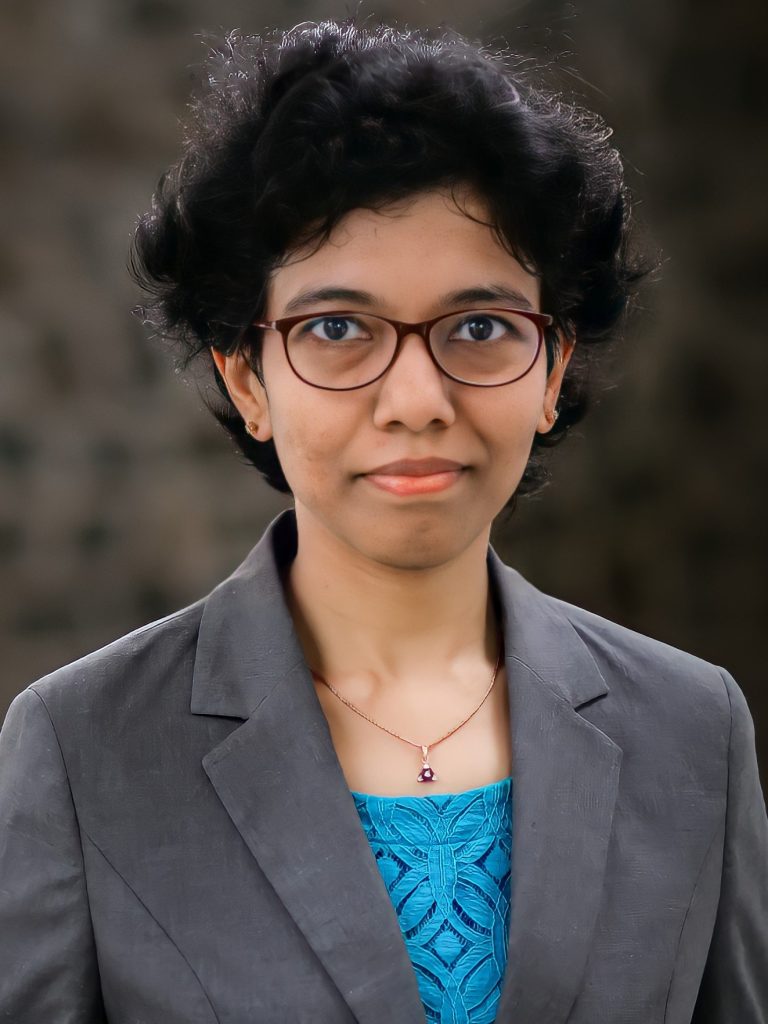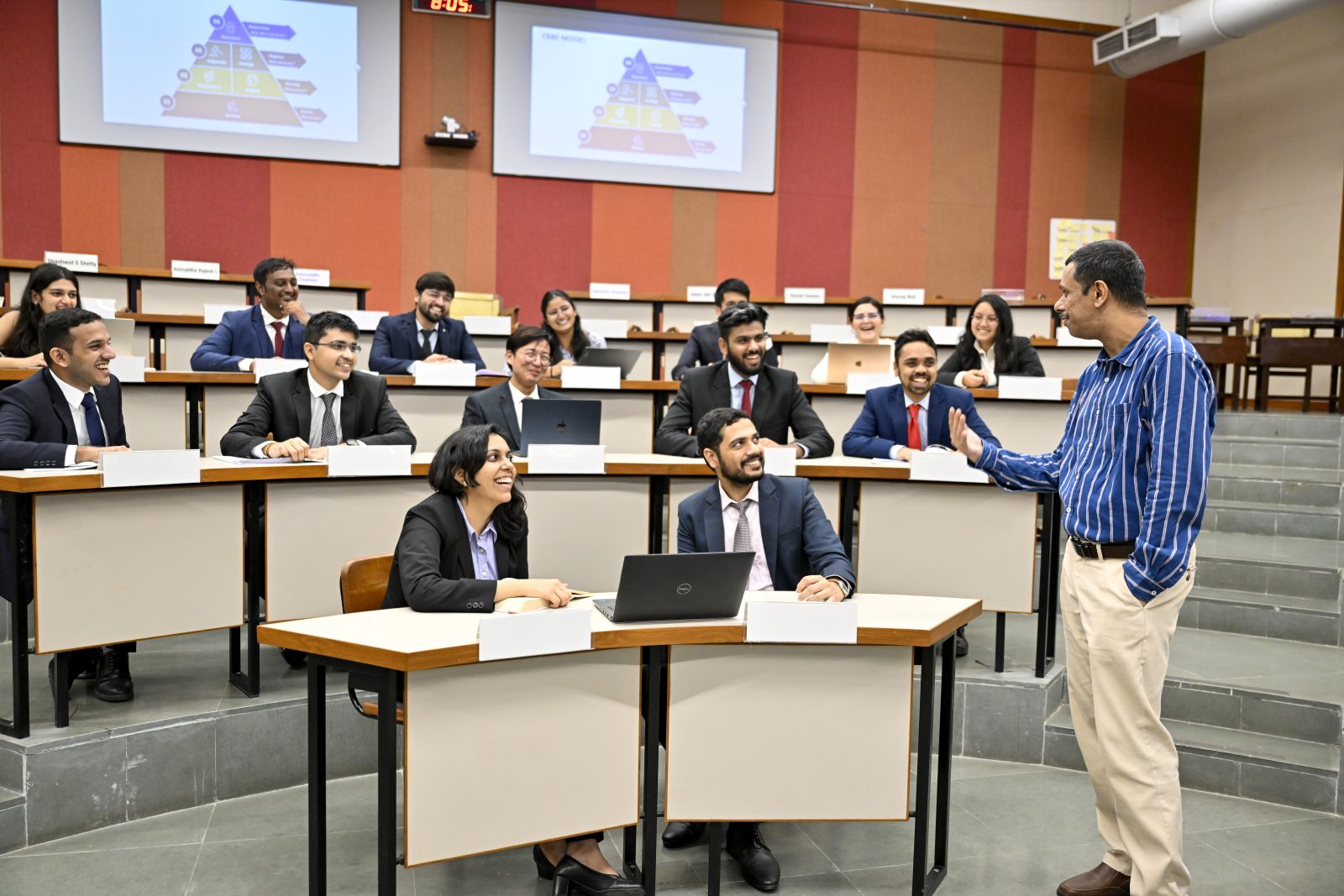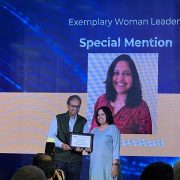Priya Narayanan, PGP 2011 & PhD 2020
Caption: Representational Image, image courtesy of Communication Dept, IIMA
Recent months have witnessed an emerging debate on the relevance of the two-year full-time MBA programmes across B-schools in India. With the rise in online and hybrid programmes boosted by the pandemic, and prospective students reconsidering spending two full years on academics, the flagship postgraduate programme at IIMs and other B-schools is under scrutiny.
To understand the issue, it is important to note that IIMs, especially the older IIMs, had historically been endowed with the mandate of training managers for the country. These institutes did so through rigorous academic programmes spanning a vast curriculum traversed over two years, and churned out general managers who could hold their own in any field.
The evolving MBA
Over the years, many things have changed but many things have held steady. Demand for the two-year full-time MBA (referred to as PGP, using legacy terminology) continues unabated: the most recent 2023 edition of the Common Admission Test (CAT) that originally provided admission to the IIMs but is now adopted by several other B-schools was written by 2.88 lakh candidates, an increase of 30% over the previous year. Clearly, the numbers attest to the popularity of the PGP.
Despite the demand for PGP seats, a wide range of other MBA programmes also find takers. These include the one-year full-time MBA and the two-year part-time MBA which are referred to as executive MBA programmes. The one-year programme generally admits candidates with considerable work experience whereas the two-year programs are less selective. Add to the mix a set of specialised, one or two-year, full or part-time MBA programmes and the menagerie is complete.
The relevance of the PGP
Like animals of all sizes and shapes that populate a forest, these programmes have coexisted, with total enrollments exceeding 4 lakh students in 2022. But evidence suggests that there is unrest among B-schools: new programmes are being launched and older programmes are reconsidered. This is surprising because if the “market” is growing, why would “players” bother with anything except growing in every “segment”?
In other words, why should Indian B-schools reconsider any of their programmes, let alone the longstanding flagship PGP? But the reality is that many Indian B-schools have voiced concerns regarding the PGP and are paying greater attention (read funding and seats) to alternatives such as the one-year MBA, two-year hybrid MBA, and specialised MBA programmes.
One understandable reason is a general sense that the relevance of the PGP is declining when compared to MBA programmes in Western B-schools. The PGP typically admits candidates with 0-2 years of work experience, whereas MBA programmes in the West have average work experience of 4-5 years or more. There is also a growing emphasis on one-year programmes rather than two-year programmes. Executive MBA programmes, short duration programmes, and online courses are also on the rise.
PGP then and now
This situation is different from that of half a century ago when India’s oldest B-schools were established. The objective then was to mould individuals, shape their minds even, and prepare them to be launched on a path where, a decade or so later, they would manage teams as true leaders. The objective today is perhaps more diluted—B-schools find themselves facing newer aspirations that are about brands and placements.
B-school students find that their brand can be more easily earned without subjecting themselves to the rigour and sheer delay of two full years of education by enrolling in any of a multitude of other programmes. Further, the B-school placements scene, across the board, is stretched at the seams due to industry- and economy-related strains. In sum, the PGP no longer holds the allure it once did.
PGP vs. other MBA programmes
For India’s B-schools, the question then is which programmes to focus on. Some find that a single-minded focus on PGP all these years has left them at a loss in the race for (revenue from) students of other programmes. Others find that ignoring the PGP has resulted in a missed opportunity. Yet others are now scrambling to decide which specialisations have the most potential.
The reasons are many. Fee structures at leading B-schools are such that students pay about 1.5 times for the one-year MBA compared to the two-year version, but the intake of the one-year programme is much smaller. So, these B-schools have an incentive to shift their focus towards the one-year programme. Second, the two-year hybrid MBA is cheaper for students compared to the full-time MBA, even as it is more financially attractive and less resource-consuming for B-schools. Again, a reason to deprioritize the PGP in favour of the hybrid MBA. The expectation of a guaranteed job at the end of a PGP is also a burden on B-schools.
The future of the PGP
So, if all odds are stacked against the PGP, why even have such a programme? One important reason is the sheer demand for the programme which in turn arises from the prestige factor which no other programme– as of today–can hold a candle to. The second, and more important reason, is the need for a programme that moulds individuals through a rigorous and wide-ranging curriculum, a broad set of extracurricular activities, industry interaction, camaraderie, and experiences to shape them into leaders. Paradoxically, however, even the best of such programmes are becoming a fondly-remembered dream.
So what should India’s B-schools do? Keep the two-year full-time MBA? Free the programme of its placement burden? Scrap the programme? Or tweak it to enhance industry interaction? The answers are not easy. And they are for each B-school to decide. But one truth is abundantly clear. Leading B-schools will find takers for whichever programmes they offer. Because in a land of teeming millions seeking to distinguish themselves, even a week spent at a top-tier B-school is worth a LinkedIn post and a boost to one’s CV.

The author is Assistant Professor of Marketing at IIM Kozhikode. Views are personal.



